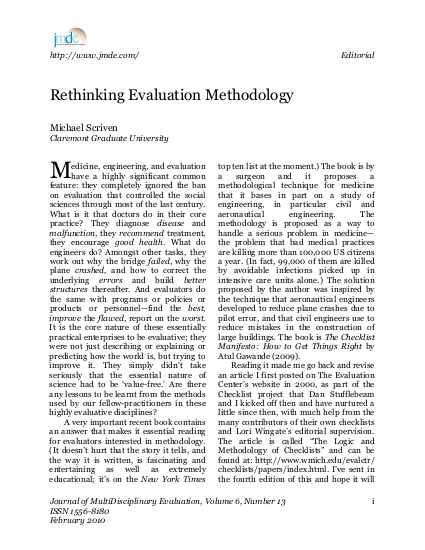
Medicine, engineering, and evaluation have a highly significant common feature: they completely ignored the ban on evaluation that controlled the social sciences through most of the last century. What is it that doctors do in their core practice? They diagnose disease and malfunction, they recommend treatment, they encourage good health. What do engineers do? Amongst other tasks, they work out why the bridge failed, why the plane crashed, and how to correct the underlying errors and build better structures thereafter. And evaluators do the same with programs or policies or products or personnel—find the best, improve the flawed, report on the worst. It is the core nature of these essentially practical enterprises to be evaluative; they were not just describing or explaining or predicting how the world is, but trying to improve it. They simply didn’t take seriously that the essential nature of science had to be ‘value-free.’ Are there any lessons to be learnt from the methods used by our fellow-practitioners in these highly evaluative disciplines?